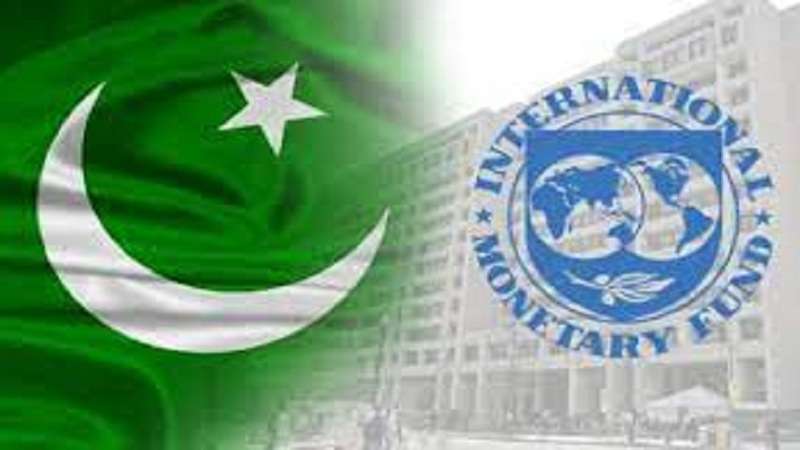Karachi, October 11, 2024 – Pakistan has reaffirmed its strong commitment to the International Monetary Fund (IMF) to substantially increase tax collection in the fiscal year 2024-25. In its latest country report, the IMF outlined Pakistan’s pledge to implement robust fiscal policies designed to bolster tax revenues and meet stringent economic goals, as the country faces ongoing economic challenges.
These measures are part of Pakistan’s broader strategy to fulfill its commitments under the IMF’s Extended Fund Facility (EFF) and stabilize its economy.
Comprehensive Tax Measures
The government’s key objective is to strengthen general government tax revenues to 12.3 percent of GDP, with new tax measures expected to generate over PKR 1,723 billion, equivalent to 1.4 percent of GDP. This will involve significant changes across multiple tax domains, ranging from personal and corporate income taxes to sales tax, excise duties, and customs duties.
Personal and Corporate Income Tax (PIT and CIT)
One of the central components of the revenue-enhancement plan is reforming personal and corporate income tax structures. Measures targeting personal income tax (PIT) and corporate income tax (CIT) are projected to bring in PKR 357 billion. Exporters will be integrated into the regular tax regime, while personal income tax reforms will streamline taxation for both salaried individuals (SI) and non-salaried individuals (NSI). Specifically, the number of tax slabs will be reduced to five, with the highest tax rate for NSIs being increased to 45%. This is a significant move towards broadening the tax base and ensuring more equitable tax enforcement.
Sales Tax Overhaul
The transformation of the sales tax structure is set to generate PKR 286 billion. The majority of products currently exempt or zero-rated will be brought under the standard tax rate. However, certain key sectors, such as education, health, and agricultural inputs, will be taxed at reduced rates of 5% or 10%. Essential food items, health products, and goods acquired by charitable hospitals will continue to benefit from tax exemptions. Pakistan’s export sector will also see a shift, with the budget terminating the preferential Export Facilitation Scheme for locally purchased inputs.
Federal Excise Duty (FED) Expansion
The government also aims to widen the scope of the Federal Excise Duty (FED), enhancing rates on various products, which is expected to generate PKR 413 billion. New FEDs will be levied on property sales, sugar, acetate tow, and lubricants. Additionally, a harmonized FED will be applied to locally manufactured cigarettes, e-cigarettes, and nicotine pouches, aligning it with that on imported cigarettes. Excise duties will also increase on cement and airline tickets. These changes reflect the government’s intent to raise revenue through excise duties, particularly targeting sectors that have previously enjoyed leniency in tax obligations.
Enhanced Withholding Taxes
To further strengthen tax collection, Pakistan plans to enhance withholding taxes and direct taxation measures, bringing in an additional PKR 240 billion. Key steps include raising the withholding tax for non-filers across various sectors, including manufacturing, wholesale, and retail. Progressive taxation on property transactions and the elimination of reduced rates for capital gains are also expected to contribute to the tax haul. Additionally, the income tax on dividend income from mutual funds will be increased to a maximum of 25%, and a new ad-valorem tax will replace the nominal tax on motor vehicle registration.
Customs Duty Rationalization
In line with efforts to rationalize tariffs, the government will eliminate various exemptions and concessions on customs duties, generating PKR 65 billion. This includes withdrawing concessions on imports of home appliances, electric vehicles, and specific food items, such as fresh and dry fruits (except Afghan apples). These measures are part of broader tariff policy reforms aimed at curbing unnecessary imports and boosting local production.
Compliance and Revenue Administration
Improved compliance measures are expected to generate PKR 157 billion, with initiatives such as the imposition of minimum import values on certain goods for withholding tax and sales tax collection. Additionally, Pakistan will enhance cross-adjustment of sales taxes between the federal and provincial governments, reevaluate property valuation tables to align with market rates, and introduce anti-fraud measures to prevent tax evasion.
Moreover, under the Tajir Dost scheme, efforts to bring retailers into the tax net are anticipated to significantly increase revenue, supported by the implementation of the Compliance Risk Management (CRM) framework. These steps, alongside an expansion of the Compliance Improvement Plan (CIP), are projected to add PKR 250 billion to the national exchequer.
Clearing Arrears
In a bid to ease financial pressure on businesses, Pakistan has also committed to clearing outstanding GST credit claims owed to companies involved in the commercialization of petroleum products. A total of PKR 80 billion in arrears will be settled during FY25, with an initial payment of PKR 35 billion.
Conclusion
Pakistan’s aggressive tax collection strategy for FY25, driven by reforms in income tax, sales tax, excise duties, and customs duties, reflects the government’s resolve to meet its commitments to the IMF and strengthen its fiscal position. With these ambitious measures, Pakistan aims to not only enhance tax revenues but also build a more transparent, efficient, and equitable taxation system, critical for the country’s economic growth and stability.
